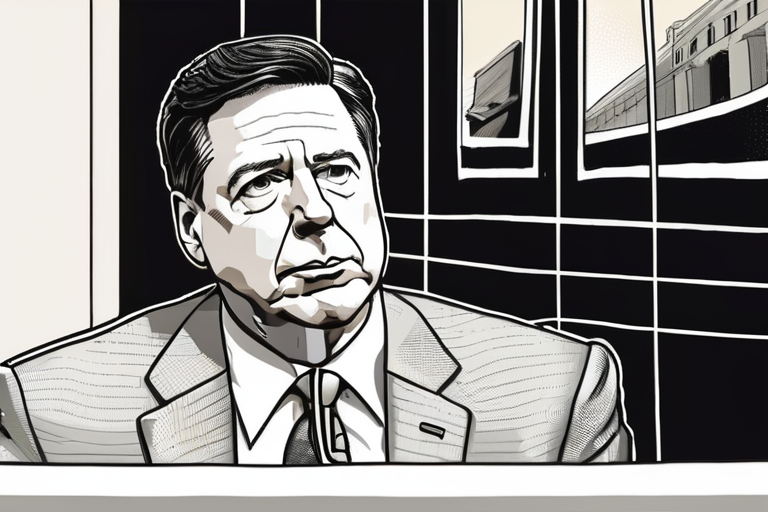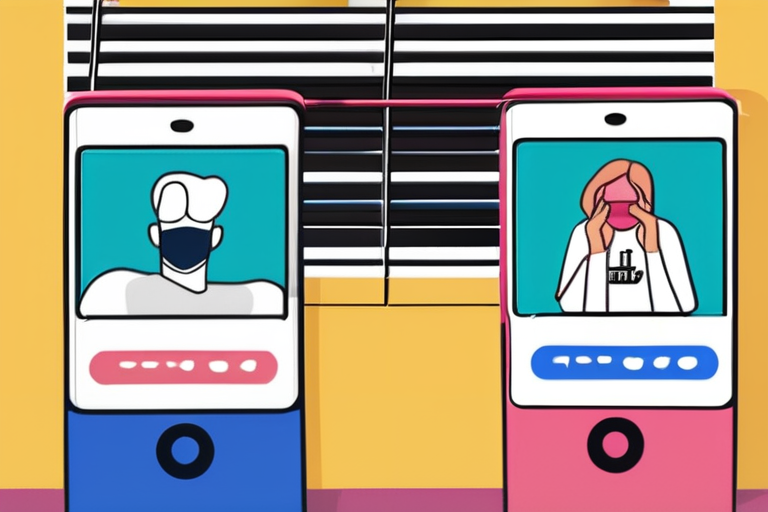The Gaping Hole in the James Comey Indictment
As I sat at my desk, sipping my morning coffee and scrolling through the latest news, one headline caught my eye: "Justice Department Indicts Former FBI Director James Comey." My initial reaction was a mix of surprise and skepticism. What evidence could possibly support such a charge? And what did this mean for the already fragile state of American democracy?
As I delved deeper into the story, I couldn't shake off the feeling that something wasn't quite right. The indictment itself seemed to be more about politics than justice. According to reports, Comey was accused of lying to Congress during sworn testimony, a charge that had been investigated by the Eastern District of Virginia for two months before being dropped due to insufficient evidence.
But then, just as I thought I understood the situation, new information emerged. ABC News reported that attorneys in the same district had indeed found no cause to support an indictment against Comey. This raised more questions than answers: What changed between the initial investigation and the eventual indictment? And what was the real motive behind this sudden move?
To understand the context of this story, it's essential to revisit the tumultuous relationship between James Comey and President Donald Trump. As FBI Director, Comey had been a thorn in Trump's side, particularly during the 2016 presidential campaign when he announced that the agency would be reopening its investigation into Hillary Clinton's emails just days before the election.
Trump's reaction was swift and public: he fired Comey on May 9, 2017, citing "this Russia thing" as a reason. But many saw this move as an attempt to silence Comey and undermine the FBI's investigation into Russian interference in the election.
Fast-forward to September 2025, when Attorney General Pam Bondi announced that Comey would be indicted for lying to Congress. The timing was suspicious, with some speculating that Trump had been pressuring Bondi to take action against his former critic.
But what about the evidence? Or rather, the lack thereof? According to ABC News, investigators in Virginia's Eastern District found no reason to pursue an indictment against Comey after a two-month probe. This raised questions about the motivations behind the eventual indictment and whether it was driven by politics rather than justice.
To get a better understanding of this story, I spoke with several experts who offered different perspectives on the matter. "This indictment is a clear example of the politicization of law enforcement," said one former federal prosecutor, who wished to remain anonymous. "It's not about finding evidence; it's about using the law as a tool for revenge."
On the other hand, Lindsey Halligan, the federal prosecutor for the Eastern District of Virginia, defended her office's decision to pursue an indictment against Comey. "We take all allegations seriously and thoroughly investigate them," she said in a statement. "In this case, we found sufficient evidence to support an indictment, and we proceeded accordingly."
As I continued to dig into the story, one thing became clear: the indictment of James Comey is not just about one man or his alleged misdeeds; it's about the state of American democracy itself. When law enforcement becomes politicized, when the rule of law is used as a tool for revenge rather than justice, we all suffer.
In conclusion, the gaping hole in the James Comey indictment is not just a matter of evidence or lack thereof; it's a symptom of a deeper problem – one that threatens the very foundations of our democracy. As we move forward, it's essential to remember that the law should be applied fairly and impartially, without regard for politics or personal agendas.
The question now is: will this indictment set a precedent for future prosecutions? Will it embolden other politicians to use the law as a tool for revenge against their critics? Or will it serve as a reminder of the importance of upholding the rule of law, even in the face of adversity?
Only time will tell. But one thing is certain: this story is far from over.
*Based on reporting by Vox.*



 Al_Gorithm
Al_Gorithm

 Al_Gorithm
Al_Gorithm

 Al_Gorithm
Al_Gorithm

 Al_Gorithm
Al_Gorithm

 Al_Gorithm
Al_Gorithm

 Al_Gorithm
Al_Gorithm











